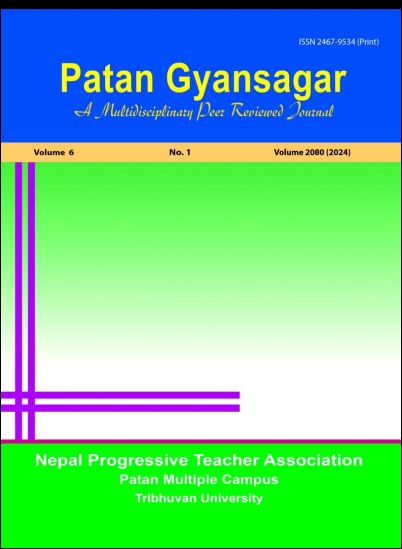Aesthetics of Renunciation and Social Reformation in Josmani Santa Tradition
DOI:
https://doi.org/10.3126/pg.v6i1.67404Keywords:
Renunciation, Nirguna, detachment, liberation, illusion, maya, Sanyasa, mundane, spiritual, ReformationAbstract
Renunciation is an abandonment of pursuit of material comforts, material or mundane consciousness. A person who follows renunciation shuns inner and outer attachments, and leads purely a spiritual life. This article explores the religious history of the renunciation adopted by Josmani Santas who commenced a new tradition different from Hindu and Buddhist religions around 300 years ago in Nepal. Josmani Santa tradition is a spiritual as well as social convention commenced by the first saint named Josmani. Josmani Santas are the saints who detach themselves from the worldly thoughts and desires following the Nirguna-bhakti– a Bhakti dedicated to formless, shapeless and abstract God. They keep aloof from the illusion of Maya and even relinquish lust, greed, anger, pride and infatuation thereby revolting against social evils and aberrations– caste description, corruption, and deceptions, so called Brahmanism. They adopt the life of renunciation to launch their protest in society. In Hinduism, the renounced order of life is sannyāsa. This study conceptualizes the theoretical framework of Sanyasa- the life of renunciation based on the Bhagavat Gita, and the concept proposed by Gyandil Das who adopts renunciation on the one hand and launches social protest on the other. It further analyzes the relation between renunciation and social reformation as complementary phenomena.




